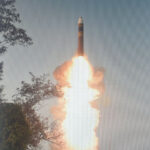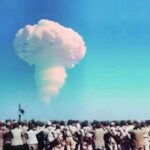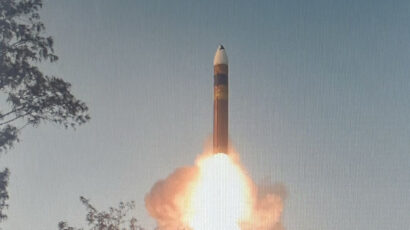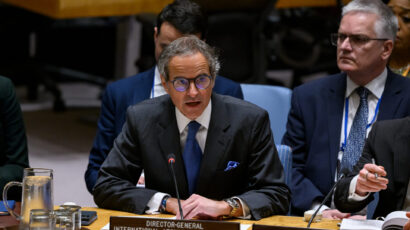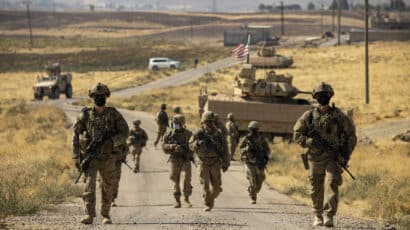Two treaties. One Congress. No time to wait.
By Fissile Materials Working Group | September 15, 2011
While Washington, DC, is paralyzed by partisanship on most topics, there is one issue that commands overwhelming bipartisan agreement: the threat posed to US national security by nuclear terrorism.
Earlier this year, Director of National Intelligence James Clapper noted that “poorly secured stocks of CBRN [chemical, biological, radiological, and nuclear materials] provide potential source material for terror attacks.” Osama bin Laden may be dead, but ten years after the terrorist attacks on Washington and New York City on September 11, 2001, the threat of nuclear terrorism is still alive.
To that end, in April 2010, President Barack Obama hosted a historic Nuclear Security Summit in Washington aimed at preventing nuclear terrorism. The 47 world leaders in attendance endorsed the four-year goal of securing all nuclear material worldwide and produced a communiqué and a detailed work plan, which called for a crackdown on nuclear trafficking, standards for securing plutonium and highly enriched uranium, and support for existing UN resolutions. Twenty-nine countries at the summit pledged to uphold more than 50 specific commitments to secure or eliminate nuclear materials. According to an April 2011 joint report released by the Arms Control Association and the Partnership for Global Security, roughly 60 percent of the national commitments made at the summit have been completed.
Of the summit commitments that remain unresolved, one stands out: the Obama administration’s pledge to accelerate efforts to complete US ratification procedures on both the 2005 Amendment to the Convention on the Physical Protection of Nuclear Material (CPPNM) and the 2005 International Convention on the Suppression of Acts of Nuclear Terrorism (ICSANT), which would each expand and strengthen US efforts to prevent and combat nuclear terrorism. George W. Bush’s administration submitted the Conventions to the Senate in September 2007 — demonstrating the strong bipartisan support for the treaties — and the Senate overwhelmingly approved them in September 2008. However, prior to US ratification, both conventions require the United States to pass legislation to criminalize certain offenses, such as the possession of radioactive material other than nuclear material.
In April, for the second time in two years, the Obama administration submitted draft legislation for the two treaties to Congress. And yet, the legislation — an easy opportunity to quickly strengthen US security — has not been introduced in Congress. And, even in this era of extreme polarization, it’s difficult to understand why.
The Amendment to the CPPNM requires parties to protect nuclear facilities and material that is stored and used domestically. The provisions in the original 1980 Convention only required physical protection for nuclear material during international transport. Thus, the amended Convention fills a critical gap in the physical protection of nuclear material wherever it is stored. According to the final report of the bipartisan Congressional Commission on the Strategic Posture of the United States, “Aside from increased financial assistance and political will, the effort to deny terrorists nuclear weapons or materials would be aided by the international establishment of priorities and physical security standards.” And then there’s ICSANT, which establishes an international framework to strengthen cooperation among countries in combating nuclear terrorism and preventing the proliferation of weapons of mass destruction. The Convention actually provides a legal basis for international cooperation in the investigation, prosecution, and extradition of alleged offenders.
When the Obama legislation was first submitted in 2010, some House Democrats raised concerns about its implementation because it expands the scope of federal offenses punishable by the death penalty. There is substantial overlap between existing US anti-terrorism laws (including those implementing anti-terrorism treaties) and the crimes covered by the legislation. For any new provisions, the possibility of the death penalty needs to be included, not so that it is promulgated, but to ensure that similar crimes are treated consistently under the law. According to the administration, crimes like possession of non-nuclear radioactive material or threatening to cause damage to a nuclear facility may not be prohibited by existing law.
Meanwhile, many other countries have indicated that they are waiting for the United States to complete ratification of the two treaties before moving ahead with their own ratification processes. And, since the CPPNM Amendment will only enter into force after it has been ratified by two-thirds of the parties to the Convention, this has had a stagnating effect: As of August 2011, only 49 out of 142 states have approved the Amendment. American leadership on nuclear security is therefore essential to the Amendment’s entry into force.
The 2010 Nuclear Security Summit raised international awareness of the need for global cooperation to secure vulnerable nuclear materials and to decrease terrorist threats. The 2012 Nuclear Security Summit in Seoul will provide another high-level push to reduce nuclear risks. International Atomic Energy Agency (IAEA) Director General Yukiya Amano will stress the importance of the amendment at the upcoming 55th annual IAEA General Conference, scheduled to take place in Vienna from September 19-23, 2011. The conference will provide an important opportunity to raise awareness about the amendment and encourage states that have yet to ratify it — such as the United States, South Korea, Japan, France, and Canada — to do so as soon as possible. With the 2012 summit a mere six months away, the United States is running out of time to make good on its pledge to ratify the CPPNM Amendment and ISCANT.
Congress should demonstrate its continued commitment to nuclear security by swiftly approving and implementing legislation for the two Conventions, thereby paving the way for their ratification in advance of the 2012 summit. Hopefully, there won’t be another terrorist attack on US soil. But, if there is, let’s make sure it’s not nuclear.
Editor’s Note: This column was written by Miles A. Pomper, senior research associate at the James Martin Center for Nonproliferation Studies at the Monterey Institute of International Studies, and Kingston Reif, director of nuclear non-proliferation at the Center for Arms Control and Non-Proliferation.
Together, we make the world safer.
The Bulletin elevates expert voices above the noise. But as an independent nonprofit organization, our operations depend on the support of readers like you. Help us continue to deliver quality journalism that holds leaders accountable. Your support of our work at any level is important. In return, we promise our coverage will be understandable, influential, vigilant, solution-oriented, and fair-minded. Together we can make a difference.
Topics: Columnists, Nuclear Weapons


